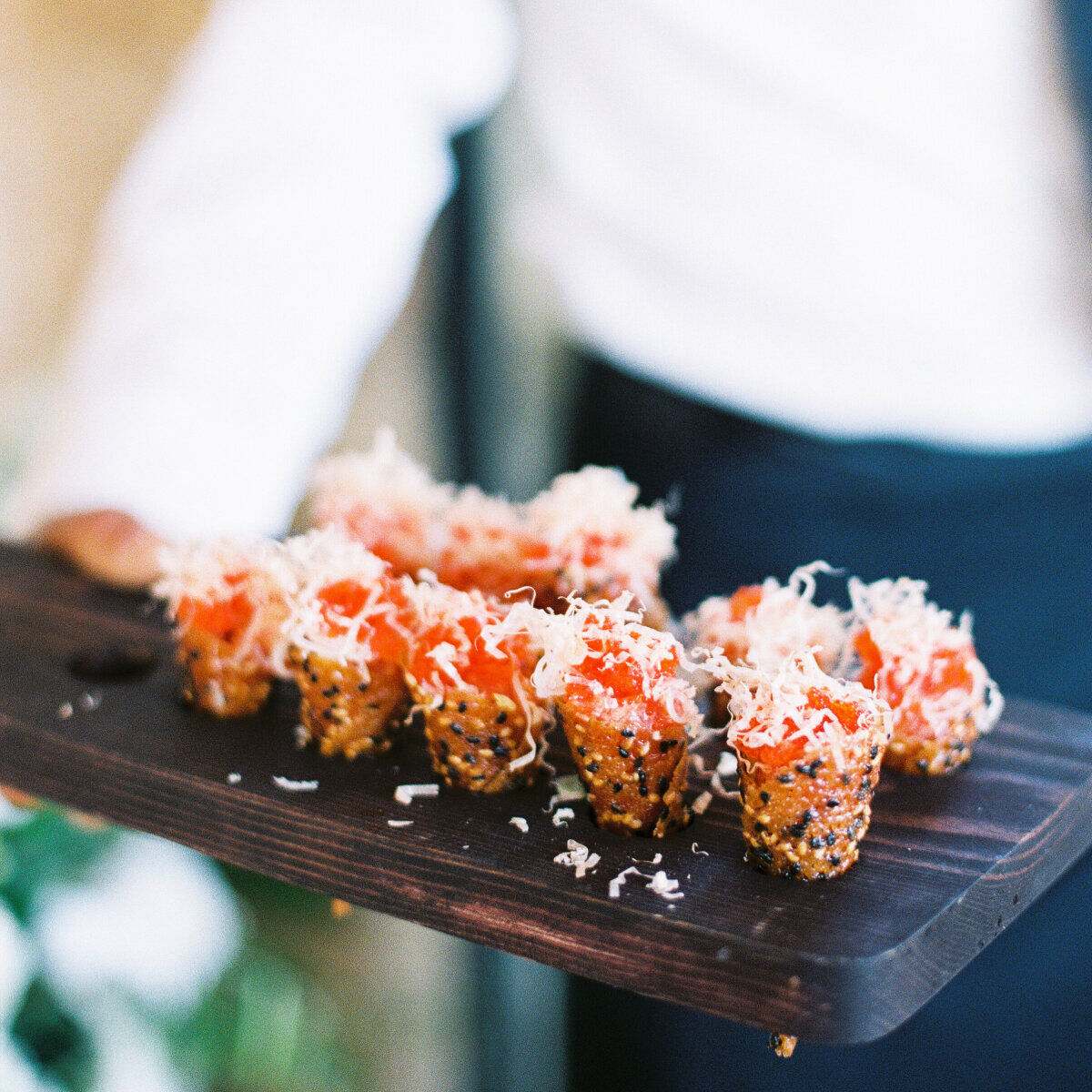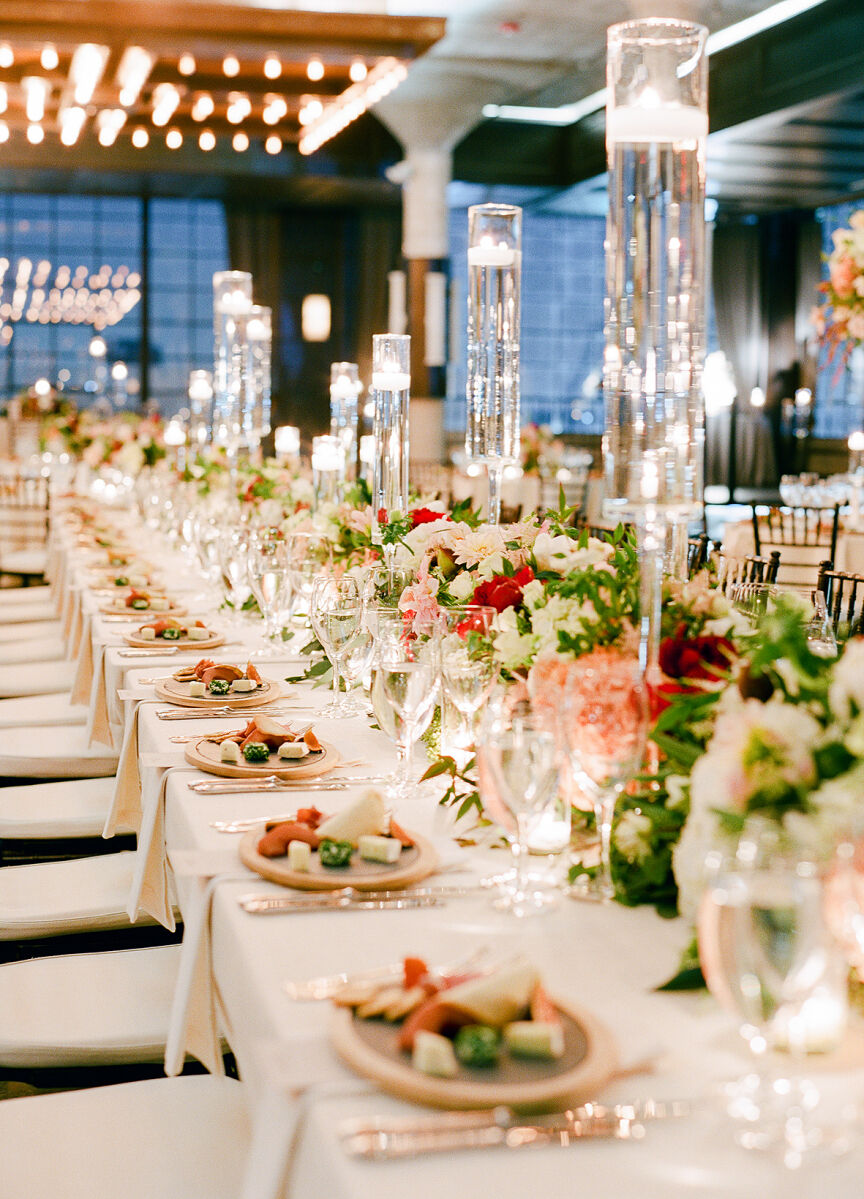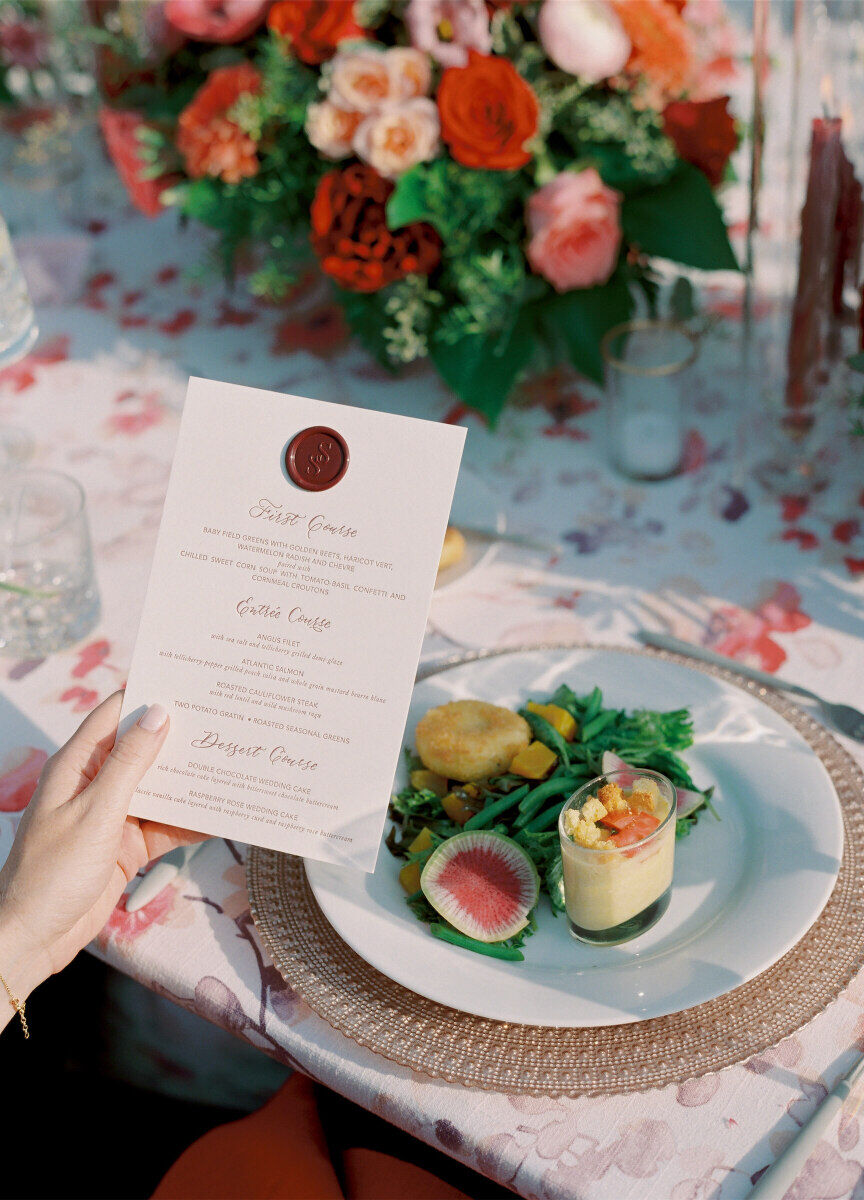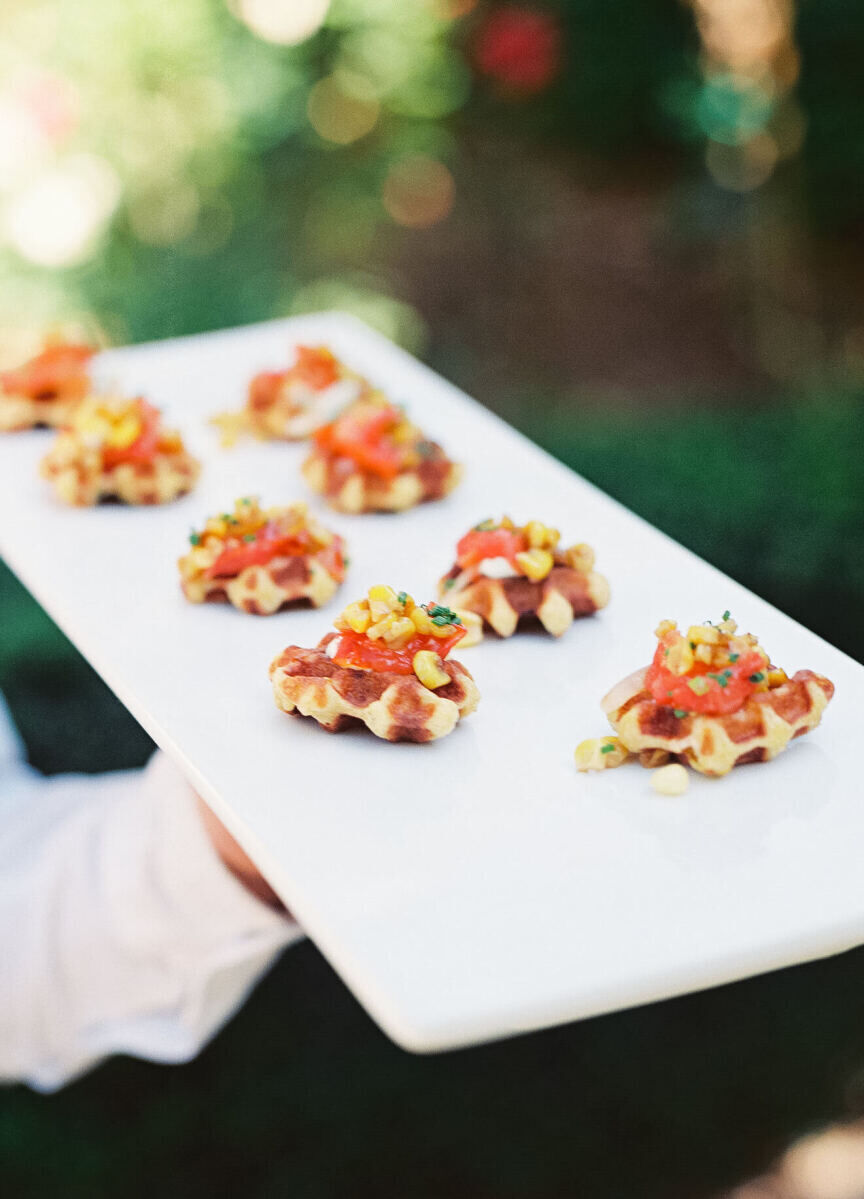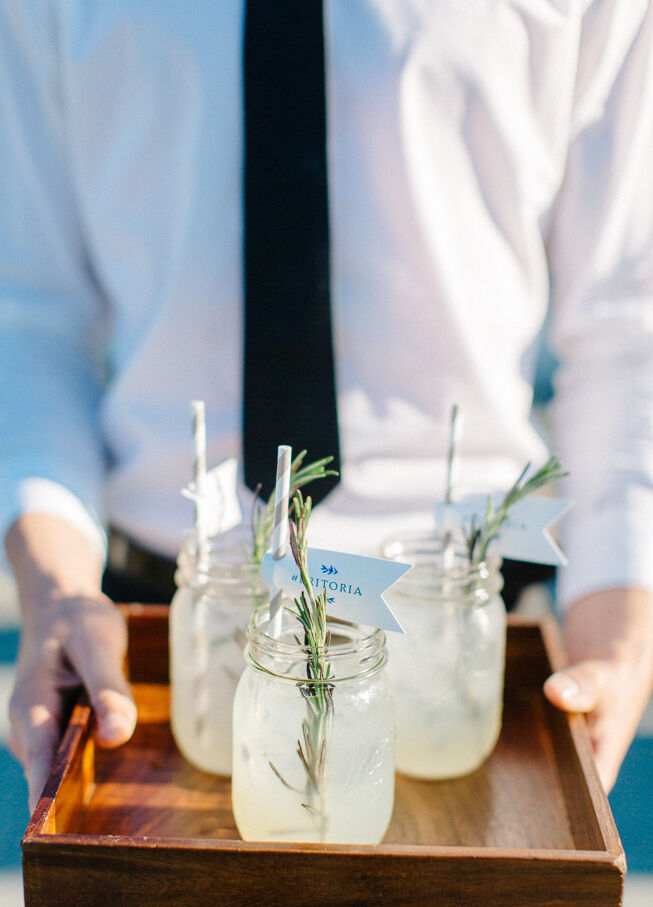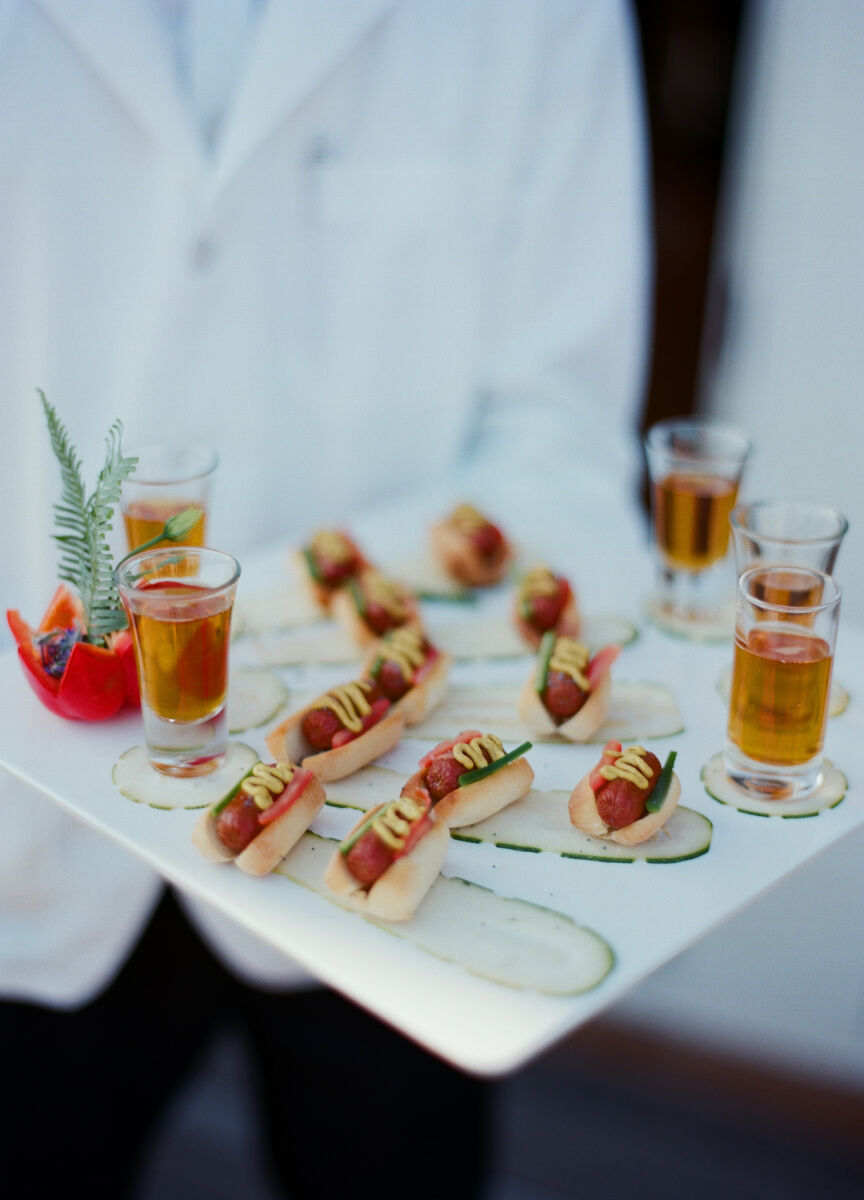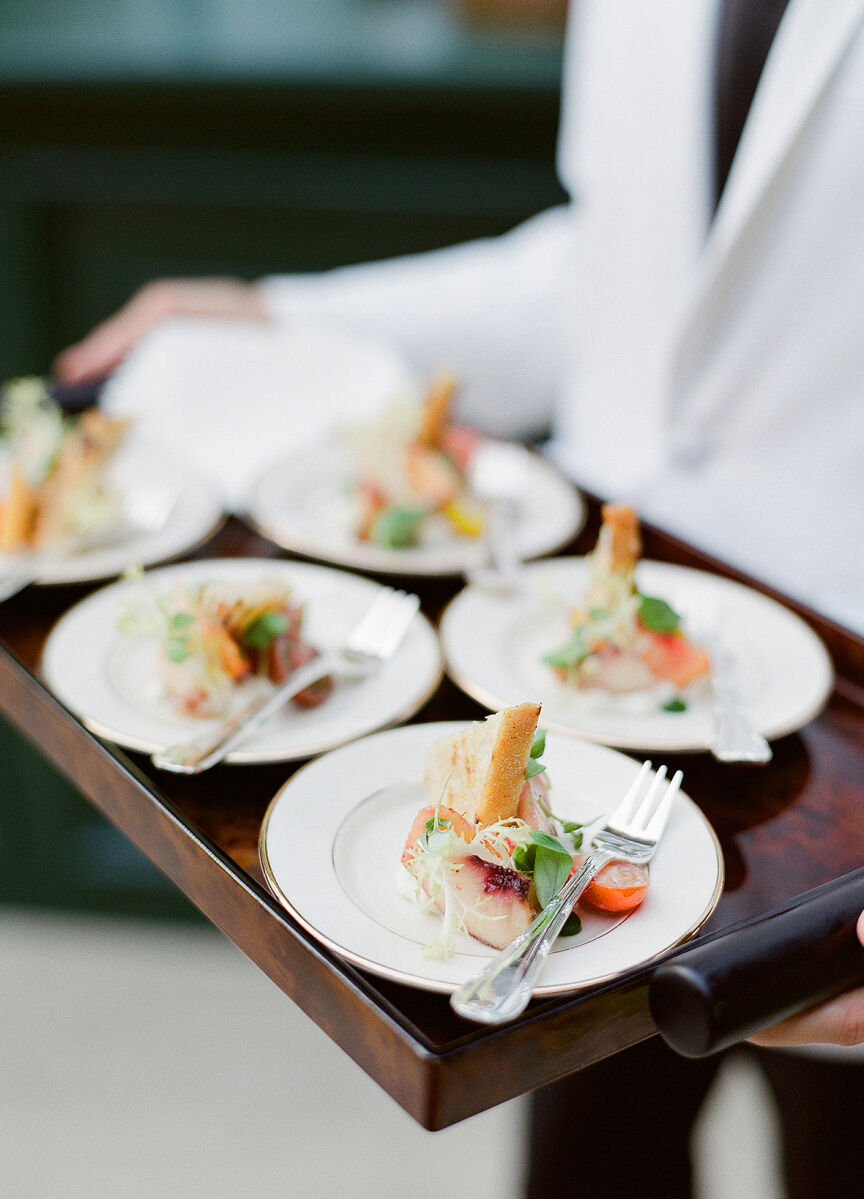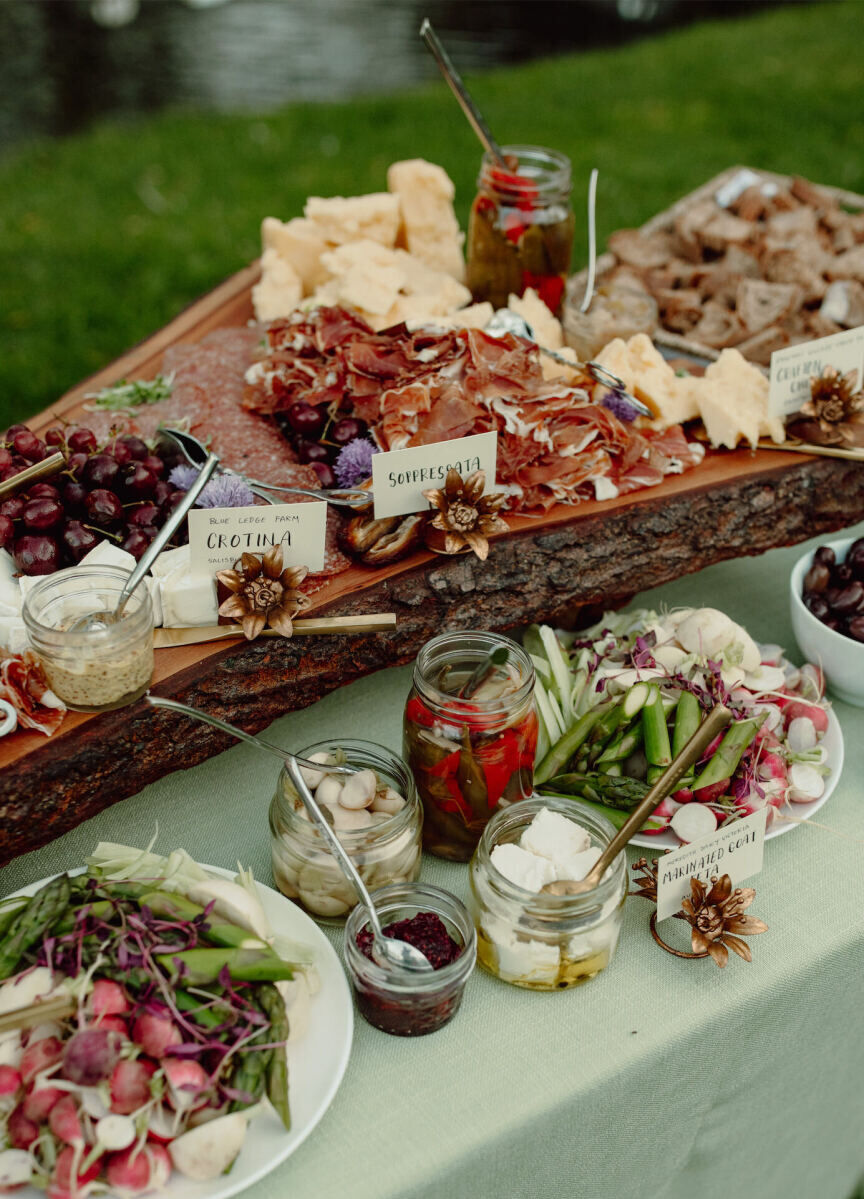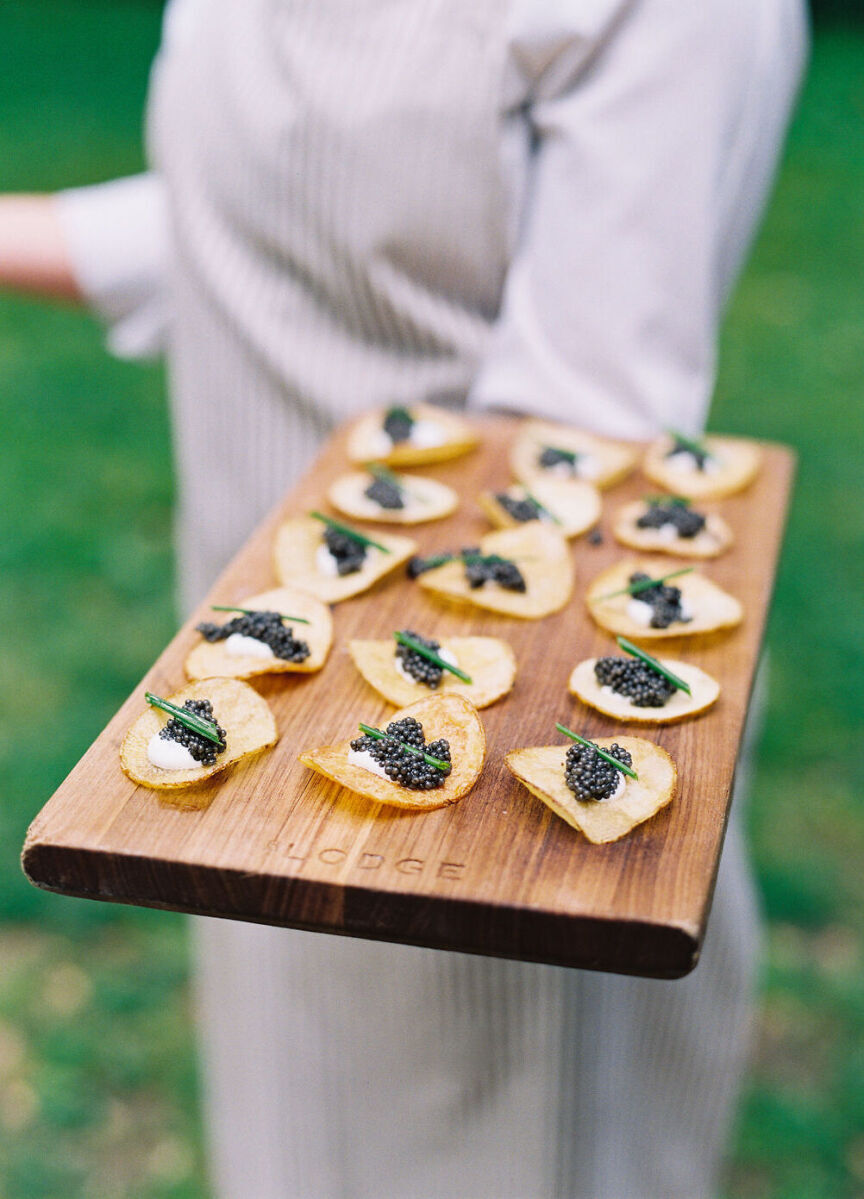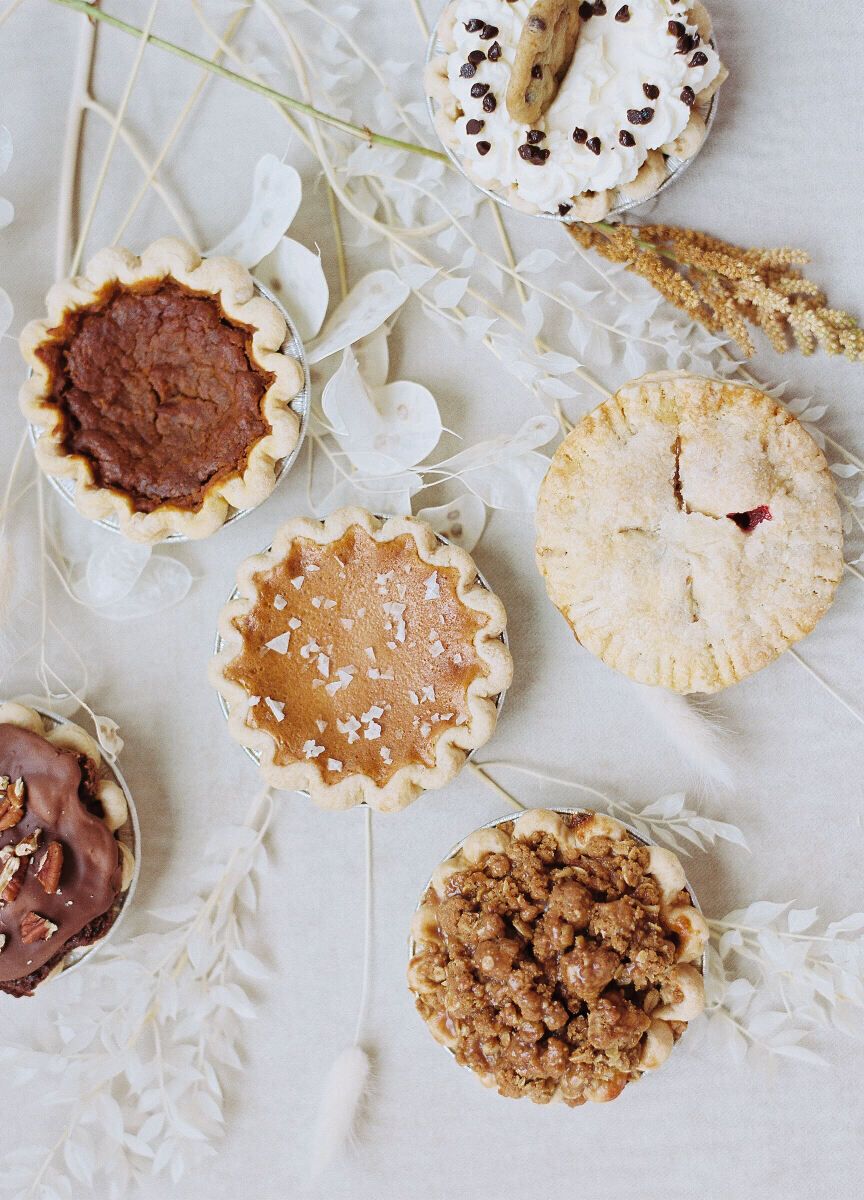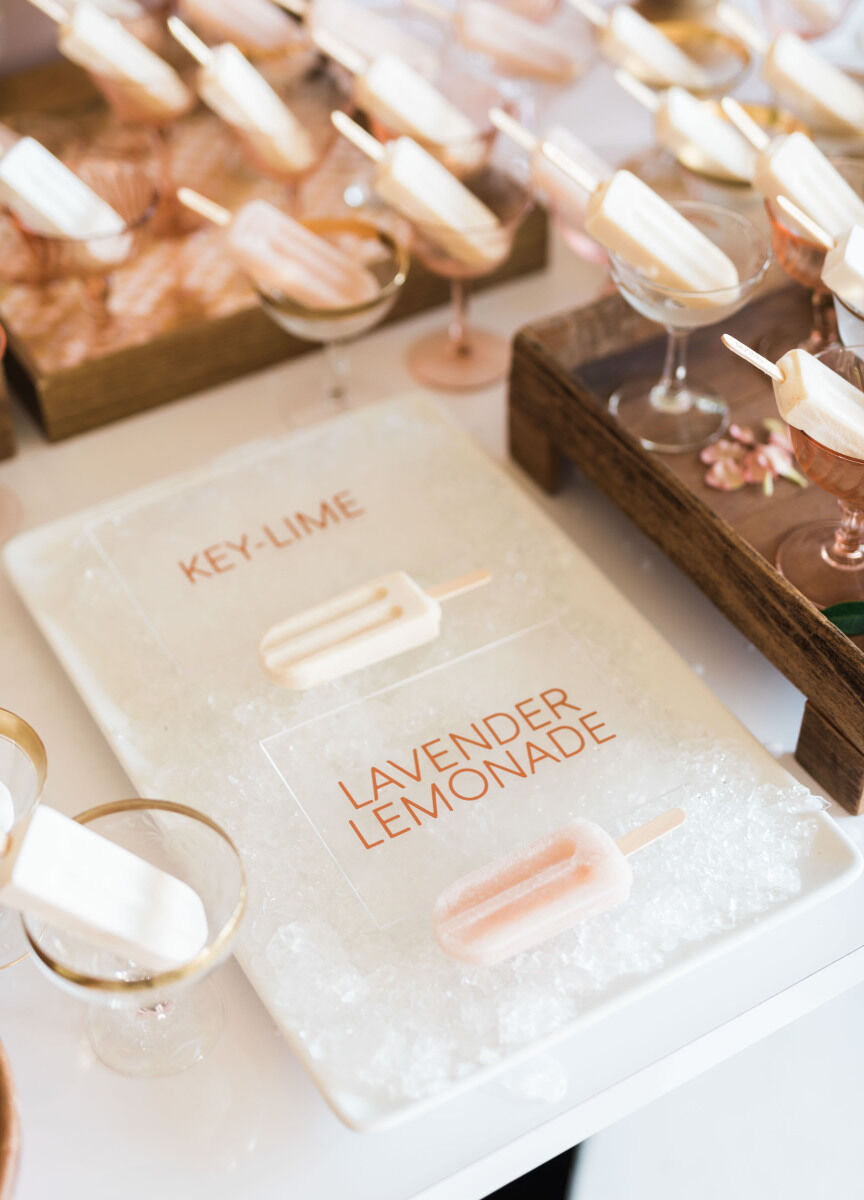At any wedding (and, we’d argue, any life event in general), food is one of the most important elements. Not only does fantastic fare make an experience that much more special—and memorable!—but it also has the potential to bust through that dated cliché of tasteless, underwhelming wedding meals. Wedding catering has come a long way over the years, and “food, alcohol, and service at a wedding are of the utmost importance,” says wedding planner Keely Thorne of Keely Thorne Events. “It sets a tone throughout the night for a guest experience and also can be a driving factor in the timeline of your event.”
Shortly after your wedding venue, planner and photographer, your wedding caterer is one of the most important vendors to get right. But how do you even start looking for a caterer who will deliver on deliciousness and totally get your vision? It’s all about doing your research and finding your fit. So while the first step on your wedding planning checklist should, most likely, be securing your venue (or planner if you need help picking a venue), shortly thereafter your focus should shift to beginning to think about wedding catering ideas and finding the best wedding caterers. “If your wedding has an overall brand or style you are trying to meet, you should ensure the food and beverage is consistent with that,” suggests Thorne. There are few things people will remember more than what they ate and drank, so choose wisely!
And since there are so… many… options... when it comes to wedding catering ideas and wedding caterer packages, we’ve created a go-to guide on how to find your perfect match. (You found your love, after all, so we know you can do this!)
